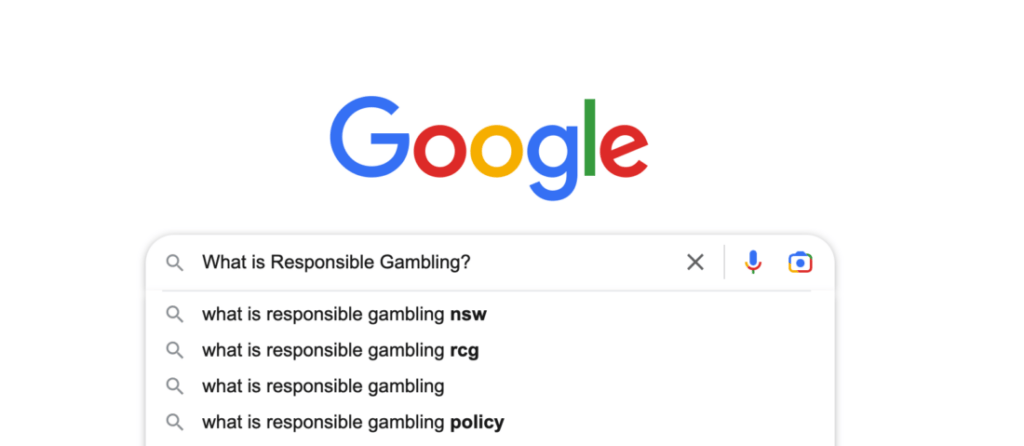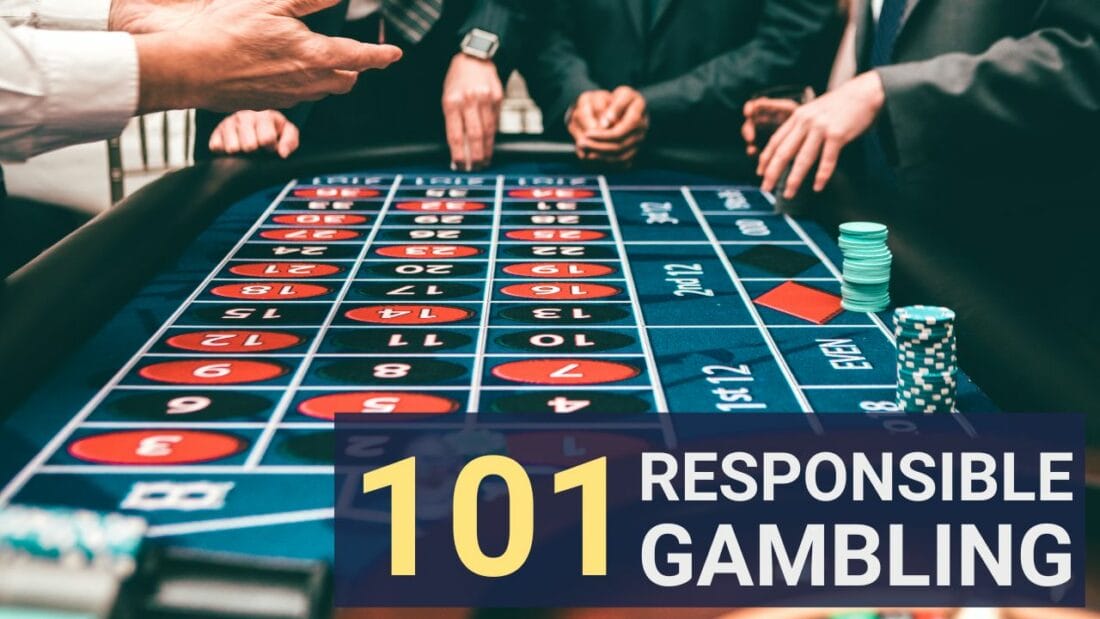The world of gambling isn’t much different – knowing how and when to enjoy this pastime responsibly is crucial for both your mental well-being and your wallet.
In this article, we’ll explore some key tips basic principles, and strategies that will help you navigate through the exciting yet potentially treacherous waters of gambling. We’ll discuss setting limits, understanding odds, problem gambling programs recognising signs of addiction, and more so that you’re equipped with all the tools needed for responsible gambling.
Whether you’re an occasional casino-goer or an avid sports bettor, this article aims to ensure that you understand what responsible wagering is, and what you need to be aware of in order to not let gambling take control over your life.
Before we start, for a problem gambler, there is no such thing as responsible gambling, no matter what any gambling operator tells you. If you think, you might have a gambling problem, please consider joining QuitGamble’s platform to get back in control.
So let’s dive in together!
Safer Gambling: Tips For Responsible Gaming
Let’s begin with the best tip for safer gambling; Ask yourself, why do I gamble? Do I gamble to:
- For excitement and entertainment?
- Win money?
- Win back money?
- Or does gambling work as a distraction?
Based on 4 years of working with gambling addiction, the only way to gamble responsibly is if you occasionally do it for entertainment. Buying a scratch ticket, or betting on your favorite team are examples of responsible gambling, as long as the gambling’s main purpose is entertainment, not to win money.
Responsible play is crucial in ensuring you enjoy the pastime without risking your financial stability or mental health. The rise of online sports betting and casino wagering has made it easier than ever for young adults to find gambling opportunities, but this also means that gambling addiction and problem gambling are becoming more developed among young adults. Suppose you want to stop gambling. Here is our guide on how to stop gambling.
Players and gambling providers must work with responsible gaming to create awareness of these issues. One strategy to maintain control over your gambling habits is setting deposit limits on your accounts. This practice restricts the ability to overspend by limiting how much money you can deposit within a certain time frame. Remember, this only works if you have one casino account. If you play at a land-based casino, only bring cash, never your debit or credit card.
Additionally, self-exclusion programs are another tool for safer gaming. The casino let players voluntarily self-exclude from gambling for a predetermined period. By utilizing these tools and being cautious of potential risks associated with excessive sports betting, the person can ensure that their entertainment remains just that – an enjoyable activity rather than a path towards personal hardship.

How To Gamble Responsibly Online?
In today’s digital age, internet gambling, and sports betting have become increasingly popular, making it even more crucial for responsible internet gambling too. There are numerous responsible gambling resources available for those who wish to stay in control of their online betting experiences. These tools and strategies can help ensure that you’re enjoying the excitement of placing bets and maintaining a healthy balance between your finances and recreational activities. Here are a few:
- Self-Assessment: Start with the anonymous Self-Assessment tool The Happiness Test, and feel free to contact us to discuss the results.
- Deposit Limit: Set daily, weekly, or monthly limits on the amount you can deposit into your account.
- Loss Limit: Restrict the amount of money you can lose daily, weekly, or monthly.
- Session Limit: Determine your play duration and receive a pop-up notification to take regular breaks.
- Wagering Limits: Set daily, weekly, or monthly limits on how much you can wager.
- Player History: A summary of your wagers, results, deposits, withdrawals, and pending bets.
- Time Alert: Keep track of your betting session duration and balance changes with periodic alerts.
- Pause Account: Temporarily close your account for a chosen period by doing it directly or contacting customer support.
Don’t let gambling take over your life; limit how much money and time you spend on these pursuits. By doing so, you’ll be able to manage any potential gambling problem before it escalates out of control. We highly recommend you take the Happiness Test. It’ll not tell you if you have a gambling problem. Instead, it will help you understand your gambling behavior and if you’re at risk of developing an addiction.
Remember that when done responsibly, online gambling is meant to provide entertainment it’s not a source of income. So go ahead and indulge in your favorite games or place wagers on exciting sports betting events while keeping these tips at the forefront of your mind.
No Responsible Gambling For Problem Gamblers
The ugly truth of the gambling industry is that a big part of the casino revenue comes from problem players. The exact number is unknown, and you can be sure that the companies will never reveal it. The operators will promote responsible gambling, rather than close someone’s account. You must be conscious of that and consider how gambling affects your life. Don’t trust anyone’s “system” for keeping you safe!
There is no responsible gambling for a person with gambling problems.
Let’s consider some points about problem gambling:
- It’s common for problem gamblers to use gambling as a way to escape.
- Problem gamblers often struggle with setting personal limits when engaging in any form of wagering activity.
- They cannot resist the urge to continue playing, even after experiencing significant losses.
- Safer gambling measures like self-exclusion can sometimes fail for problem gamblers due to their inability or unwillingness to recognize their problematic behavior. Because according to escape theory, gambling isn’t the real problem. It’s just the symptom of something else.
As much as we want this idyllic world of harmony between fun-seeking patrons and well-intentioned casinos to exist, reality paints a different picture. The truth is that problem gamblers cannot engage in responsible betting practices regardless of how many safeguards are put in place by industry stakeholders.
So, instead of believing in fairytales spun by those looking out for their bottom lines rather than the welfare of vulnerable individuals, let us focus on providing support and help for those afflicted by addiction so they may one day break free from its vicious grip.
Spotting Problematic Play
Licensed gaming operators have a duty to promote responsible gambling. It’s essential for players to be aware of tips and strategies for maintaining control over their own play. Recognizing the early indicators of problematic play can prevent further escalation into severe gambling issues. Here are a few symptoms that gambling is getting out of hand:
- Continuing to play after winning
- Increasing bet amounts for the same thrill
- Gambling with money you can’t afford to lose
- Borrowing money to finance gambling
- Gambling to cover existing debt
- Feeling restless without gambling
- Regretting gambling afterward
- Failed attempts to quit gambling
By being vigilant about our own behavior and paying attention to those around us, for example, we can help identify possible instances of compulsive or underage gambling among friends or family members. It’s crucial that everyone in the betting community takes responsibility for promoting safe and enjoyable experiences by employing responsible gambling techniques.
This way, we are better equipped to avoid falling prey to addictive patterns and assist others struggling with their gameplay habits.
Why Companies Promote Responsible Gambling
In most Western countries and most states, gambling is regulated. It means that authority has set rules for what gambling companies can do, and what isn’t.
Promoting responsible gambling is probably the most common of these requirements. In the Responsible Gaming Codes Of Conduct, we’ll show what rules a few gambling commissions have set for what responsible gambling is.
The reason gambling companies promote RG is to avoid fines. However, in recent years, many operators both in Europe and the US have faced huge fines for failing in the RG work. Naturally, these companies want to make more money anyway, so they try to bend the rules as much as possible. Yet another reason for being cautious, and monitoring your own gambling.
Another reseason companies promote responsible play is to foster corporate social responsibility CSR. It means that the companies work with responsible gambling to “clean” the industry’s bad reputation in many countries. It can have a positive effect both on how the general public look at the industry and how casino employees see themselves.
Now that we’ve covered spotting problematic betting in our previous article section, let us explore ways in which companies can contribute towards responsible gambling and safe wagering.
Industry Tools For Responsible Gambling
Most online gambling providers use RG tools to monitor their customers’ gambling behaviors. It has also become an attractive business for service companies. Mindway AI is one company that focuses on offering automatic monitoring systems using AI. Mindway AI has two tools they offer: GameScanner and Gamalyze. Mindway AI combines human expert assessments with advanced brain scanning to provide valuable insights into both normal and problematic gambling behaviors.
Kindred Group has its own tool they call PS-EDS, or Player Safety – Early Detection System. Player Safety – Early Detection System (PS-EDS) is a next-gen internet gaming tool that alerts the Responsible Gambling team of customers exhibiting harmful behavior. The analysts follow up on automated PS-EDS alerts with additional support. PS-EDS technology utilizes an algorithm based on the DSM-5 mental health classification model to identify behavioral indicators, translating them into data points. The system considers 27 features by combining DSM-5, web analytics, and risk calculations for enhanced detection of harmful online gambling behavior.
There are also many service companies that focus on educating about responsible gambling. They offer lectures and workshops to schools, corporations, and sports clubs.

Responsible Gaming Codes Of Conduct
Responsible gaming codes of conduct are a set of guidelines and principles that all gaming operators and administrators need to abide by in a regulated market. Here is a sample from the United Kingdom and the Gambling Act 2005.
Some of the key provisions of the Act relating to gambling harm include:
- Age verification: It is illegal for anyone under the age of 18 to gamble in the UK. Gambling companies must take reasonable steps to verify the age of their customers before allowing them to gamble.
- Self-exclusion: Operators must offer customers the option to self-exclude their services. This means that customers can voluntarily ask to be excluded from gambling for a specified period of time, usually six months or more.
- Advertising and promotion: Gambling operators must not advertise or promote their services in a way that is likely to appeal to children or vulnerable people.
- Customer interactions: Gambling operators must monitor their customers’ behavior and intervene if they suspect that a customer may be experiencing harm as a result of their gambling. This can include offering self-exclusion, providing information on how to access help and support, and referring customers to specialist treatment services.
- Problem gambling support: Gambling operators must provide information and support to customers who are experiencing harm as a result of their gambling. It can include signposting to specialist treatment services, offering self-exclusion, and providing information on responsible gambling.
Source: Gambling Act 2005, UK
In Sweden, the Swedish government implemented similar laws around player responsibility in 2018. In the US, most states have some kind of regulation of gambling as well.
The Future Of Responsible Gambling
Looking ahead, it is essential for stakeholders in the gambling industry – from operators and regulators to support organizations and individual players – to collaborate in developing innovative solutions that encourage responsible gambling practices.
It’s likely that more RG tools will be developed with artificial intelligence. These tools will be able to detect any problematic gambling, long before any human could do the same. The question is what happens then? For players to feel safe, some third party would need to monitor these systems to ensure that they are used to protect players rather than “find them”.
The industry would need to work closely with organizations like QuitGamble.com, so the players who are at risk of developing problems can get immediate support for problem gambling programs if they want. As part of RG, reducing the stigma around compulsive gambling needs to be addressed as well.
Together, we can shape a bright future of internet gaming where everyone has access to effective resources for managing their gambling responsibly while still enjoying the thrill of wagering as a form of entertainment.
FAQ
Why Is Responsible Gambling Important?
Why is it crucial to adopt responsible gambling habits, and what key tips and strategies can help players maintain control? Responsible gambling is vital as it ensures that the person engages in this form of entertainment without succumbing to addiction or experiencing negative consequences.
By adhering to key tips and strategies such as setting limits on time and money spent, seeking assistance when needed, and maintaining a healthy balance between gaming and other activities, one can enjoy gambling responsibly while keeping potential risks at bay.
Embracing responsible gambling not only promotes personal well-being but also fosters an ethical and sustainable industry for all stakeholders involved.
What Is Responsible Gambling For Operators?
Operators include casinos, online gaming platforms, and other establishments where gambling activities take place. These operators are not only responsible for providing enjoyable and entertaining experiences but also ensuring players engage in safe betting behaviors.
Casinos and other operators should prioritize creating policies and programs aimed at supporting their patrons’ well-being while enjoying their services. It includes training staff members to identify potential signs of problem gambling among casino employees and guests and equipping them with the necessary tools to intervene effectively.
In addition to this, operators must ensure transparent communication regarding various aspects of the games offered – including odds, rules, payout percentages – so that customers know what they’re getting into before placing bets. The bottom line is that there is a shared responsibility between players and operators when it comes to fostering responsible gambling habits; by working together proactively through education, prevention measures, and ongoing support initiatives, everyone can enjoy the excitement of gaming without risking negative consequences down the road.
What Are Three Ways To Be A Responsible Gambler?
Firstly, setting limits is an integral part of any responsible gambling strategy. It involves establishing strict guidelines on how much money you’re willing to spend, as well personal limits such as how much time you’ll devote to gambling activities. By adhering firmly to these self-imposed boundaries, you reduce the risk of developing harmful behaviors or getting caught up in financial troubles.
Secondly, maintaining a balanced perspective between leisure and necessity helps keep your approach contextually relevant; always remember that gambling should be treated as entertainment rather than an income source or means of solving financial problems.
Lastly, staying informed about the game you play enables you to make smarter decisions. Educate yourself about game rules, odds, and payout structures so that you can strategize effectively during playtime – after all, knowledge truly is power when it comes to being a responsible gambler!
How to Help Someone Struggling With Responsible Gambling?
Friends and family members can play a crucial role in helping someone who is struggling with responsible gambling. It’s essential to be supportive, understanding, and non-judgmental when addressing the issue. Here is our full guide on how to help a gambler.
Encouraging open and honest conversations about their gambling habits can help them recognize any potential problems. Offering assistance in setting limits on the period of time and money spent on gambling or suggesting alternative activities for leisure can also be beneficial.
Additionally, it’s important to educate oneself about problem gambling resources available, such as support groups and professional counseling services, so that one can provide guidance and information to their loved one when needed.
Lastly, being vigilant regarding signs of relapse and knowing how to respond appropriately will further assist the person in maintaining control over their gambling behaviors.
What Is The Difference Between Responsible Gambling And Safer Gambling?
As we’ve seen, being a responsible gambler involves making informed decisions and setting appropriate limits. But how does this differ from the concept of safer gambling?
Responsible gambling refers to adopting tips and strategies that promote healthy betting habits while maintaining control over one’s actions. Some key aspects of responsible gambling resources include:
- Setting personal time and money limits
- Ensuring you gamble only with disposable income
- Not chasing losses or using gambling as an emotional coping mechanism
Safer gambling focuses on creating contextually relevant safeguards at both individual and industry levels, aimed at minimizing potential harm caused by problematic betting behaviors. It encompasses factors such as:
- Implementing robust self-exclusion tools & support resources
- Encouraging operators to adopt transparent policies regarding odds & payouts
- Developing targeted educational campaigns for vulnerable populations
Both concepts are integral components of a holistic approach to promoting healthier attitudes and practices within the gaming sphere.
Conclusion
We state it again, there is no responsible gambling for someone struggling with gambling. Don’t let anyone foul you. But, if you can gamble for fun, and keep it that way. You can enjoy responsible betting and other forms of gambling.
It’s likely we’ll see more RG tools in the future, how effective they will be to protect players are entirely dependent on how the operators and gambling regulators intend to use them. Our best tips are to understand why you’re gambling and keep track of how you play. Do you gamble for fun, or do you gamble because you dream of money? If the answer is money, then be extra careful.
Good luck!
 English
English Español
Español Français
Français Português
Português Svenska
Svenska

